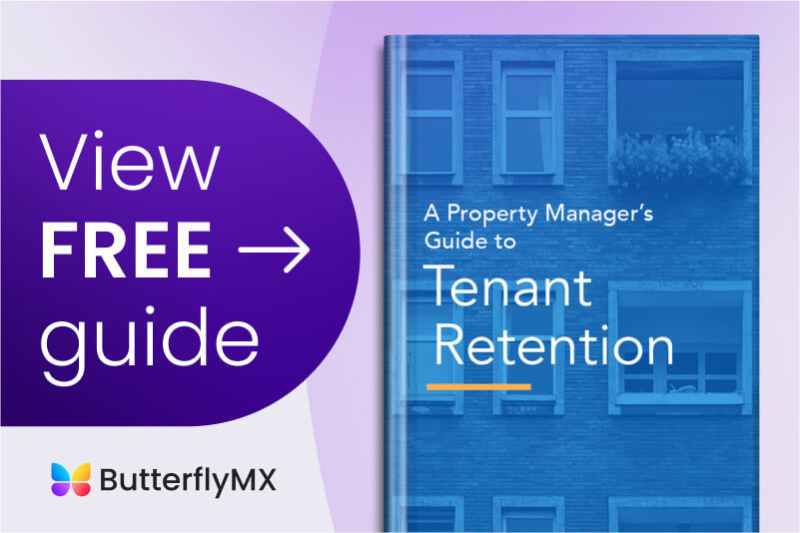
Managing one or more properties requires flexibility and resourcefulness. Property managers are often expected to have a versatile skill set and be knowledgeable in a wide variety of areas. So, if you want to successfully land a job in property management, your property manager resume must showcase these skills.
Knowing the key skills and objectives to highlight in your property manager resume will ensure that it stands out from the rest. Continue reading for tips on writing an effective resume.
This guide will cover:
- What’s the objective of a property manager?
- What are the responsibilities of a property manager?
- What should I put on my resume for property management?
- Property manager resume checklist
- How do I write a cover letter for a property management position?
What is the objective of a property manager?
The objective of a property manager is to handle the daily operations of the property and preserve its value by maximizing NOI (net operating income). Property managers advertise vacancies, find residents, oversee building operations, set or adjust rent prices, and generate revenue for the property owner.
Here’s how you can meet your objective as a property manager:
- Budgeting
- Market vacancies on rental listing sites like Apartments.com, Zillow, and Facebook Marketplace
- Increase occupancy and resident retention rates
- Oversee maintenance
What are the responsibilities of a property manager?
A property manager has several duties that help the building run effectively. Keeping detailed records and maintaining an organized schedule that keeps you on track will help you meet the expectations of both the property owner and residents.
Property manager responsibilities include:
- Setting rent prices: Using market data, making note of competitors’ prices, and knowing valuable location data will help you set rent prices that are profitable and realistic.
- Preparing units: Taking the time to clean, repair, and upgrade units helps maintain the value of the property while improving resident satisfaction.
- Advertising vacancies: Using SEO to market your building ensures that prospects can easily find it.
- Screening prospects: Employment verification and conducting background checks helps guarantee that the residents you approve are the right fit for the property.
- Preparing lease agreements: Creating contracts and preparing lease agreements is a vital part of property management.
- Resolving resident complaints: Addressing residents’ property concerns promptly and effectively helps increase lease renewals.
- Collecting rent: Having a streamlined rent collection process ensures that your property is profitable.
- Handling property maintenance: Keeping up with maintenance helps ensure that your property retains its market value.
- Processing move-ins & move-outs: Processing move-outs efficiently helps get prospective residents into newly vacant units quickly and seamlessly.
- Keeping track of contracts and records: Having a spreadsheet or software that preserves contracts, lease agreements, legal documents, and records is key to ensuring smooth operations.
Watch to learn how much you should charge for rent at your building:
What should I put on my resume for property management?
A property manager’s resume should always include a brief summary of your experience, education, qualifications, and accomplishments. These sections of your resume should be clear and concise yet engaging. Recruiters have to sift through hundreds of resumes, so it’s important to make sure that yours shines.
Making sure that your resume is organized and easy to follow will also ensure that it stands apart from others.
Here’s what to put on your property manager resume:
- Education: Beyond including degrees you hold, list out any additional coursework or ongoing learning you’ve completed.
- Experience: List any relevant experience that demonstrates your ability to successfully manage properties, lead staff, and coordinate maintenance.
- Skills: Strategically use SEO keywords to highlight any skills you’ve acquired as a property manager or real estate agent to ensure that your resume gets noticed.
- Certifications/Awards: Certifications like real estate licenses or any awards that recognize your leadership or academic achievements will look great on your property manager resume.

Property manager resume checklist
One of the simplest ways to start writing your resume is by following a checklist. Prioritizing these sections of your resume will make it easier for recruiters to determine whether you’re a good fit for the role.
If you’re unsure of what exactly to include in your resume, a resume checklist can help guide you. You want to avoid including unnecessary details and instead focus on what’s most important to recruiters. A surefire way to make sure your resume gets noticed is to include the items listed below.
Property manager resume checklist:
Objective
A resume objective is a brief statement at the top of your resume that describes your career goals. Including an objective immediately shows recruiters what type of role you’re seeking and whether you might be a good fit for the role they’re hiring a new property manager for.
Here are a few sample property manager objectives for a resume:
Performance-driven property manager looking for a role where I can apply my extensive knowledge of using market trends to generate revenue, grow occupancy rates, and increase resident retention.
A highly motivated problem solver who excels at resolving resident concerns and leading staff. Seeking a role where I can utilize my conflict-resolution and mediation skills to lead maintenance teams, build relationships with residents, and increase occupancy rates.
Detail-oriented and hardworking real estate professional seeking a role in property management. Has experience in lease administration, rent collection, and team-building. Highly skilled in developing effective business plans, resolving resident concerns, and social media management.

Keywords
Most recruiters use software to pick up keywords and phrases that best align with the position they’re hiring for. Using these keywords throughout your resume — and particularly in the ‘skills’ section — will help you get noticed.
For example: Hiring software is more likely to notice a phrase like “lease administration” as opposed to a phrase like “managing leases.” Direct phrases, like resident retention or investment properties, are also great key phrases to include in the skills section of your resume. Being strategic when writing your resume is essential if you want to stand out.
Additional key phrases to consider:
- Multifamily housing
- Fair housing
- Contract negotiation
- Property inspection
- Lease agreements
- Budgeting
Experience
One of the first things recruiters look for in a resume is relevant experience. Outlining your experience clearly and effectively while showcasing your abilities to manage properties is a vital aspect of your resume.
However, try formatting your experience section as a bullet point list. Rather than writing out long sentences describing your responsibilities in each role, write bite-sized bullet points that clearly and concisely state what you did.
Don’t:
“In my role of Community Manager at [Company], I reviewed lease applications from prospective tenants and decided whether to approve them. I also managed property maintenance requests, which entailed using maintenance management software. Finally, I replied to residents’ inquiries and followed up in a timely manner.
Do:
- Reviewed lease applications
- Screened applicants
- Managed leasing paperwork
- Oversaw property maintenance requests using X software
- Followed up with resident inquiries by phone and email

Real estate certification
Enrolling in an accredited real estate school and getting your license will not only help you understand the industry but also help you get your foot in the door of the multifamily industry.
Achievements
Showcasing the ways that you successfully manage properties by increasing NOI is valuable information to include in your resume. These metrics show owners that you have what it takes to manage properties effectively and keep them profitable.
Include a brief section that displays any awards or professional achievements to show that you’re an exceptional property manager.
Examples of great achievements include:
- Revenue that you’ve generated in previous positions
- Academic or leadership awards
- Frameworks or procedures that you’ve developed or optimized
- Ways that you’ve innovated previous practices
You can format these achievements by including an awards or accomplishments section in your resume. Making a short bulleted list of any relevant achievements that you’ve met also makes it easy for the recruiter to read. Highlighting these accomplishments will set your resume apart from the rest.
For example:
Brookhaven Homes | Cincinnati, Ohio
Property Manager
- Increased occupancy by 20% after the first year
- Awarded for excellence in leadership
- Helped develop an innovative marketing strategy that increased NOI by 10%
Education
Property managers need a high school diploma to qualify for most positions. Taking complementary real estate and property management training courses will also assist you in performing the role effectively.
Highlight any courses you completed on your resume. This illustrates to recruiters that you’re committed to learning and growing.

How do I write a cover letter for a property management position?
Cover letters are your chance to show recruiters and hiring managers who you are. A thoughtful cover letter is a valuable complement to a great resume.
Cover letters should showcase your skills while expressing your interest in the role. Taking the time to research the company and show why you’d be a great fit is a crucial way to stand out. Personalize your cover letter for each application to prove you care about that unique role.
5 tips for writing a property manager cover letter:
- Have a strong opener: Make sure that the first sentence of your cover letter is engaging while outlining your diverse skill set.
- Be conscious of tone: The tone of your cover letter should be compelling yet professional. Conveying your enthusiasm while retaining professionalism is ideal. Avoid using a tone that’s too casual since that may convey to the recruiter that you’re not serious about the role.
- Do your research: Researching the company you’re applying for and getting a sense of their culture and values shows that you’re enthusiastic about the opportunity. Gathering awareness of the types of properties you’ll be managing also makes it easier to convey how you can contribute to making those properties successful.
- Highlight your value: If you want to make a great impression, showcase what you bring to the table and highlight your unique skills. Illustrate where you’ll add value to existing business operations to increase your chances of landing an interview.
- Have a strong close: The final sentences of your cover letter should always reiterate your enthusiasm for the position and emphasize how your skills will positively benefit the property owner. Pro tip: Always thank the recruiter for their time when closing out your cover letter.
Takeaways
Creating a great property manager resume can be a difficult task. But knowing what to include in your resume will ensure that the final product is effective. Displaying your skills and experience in a way that’s organized, clear, and strategic will help set your resume apart from the rest.
You can make sure your property manager resume stands out by:
- Including relevant skills, education, certifications, and experience
- Knowing your state property management requirements and housing laws
- Showing how you’ve maximized NOI and generated revenue in past roles
- Writing a great cover letter







